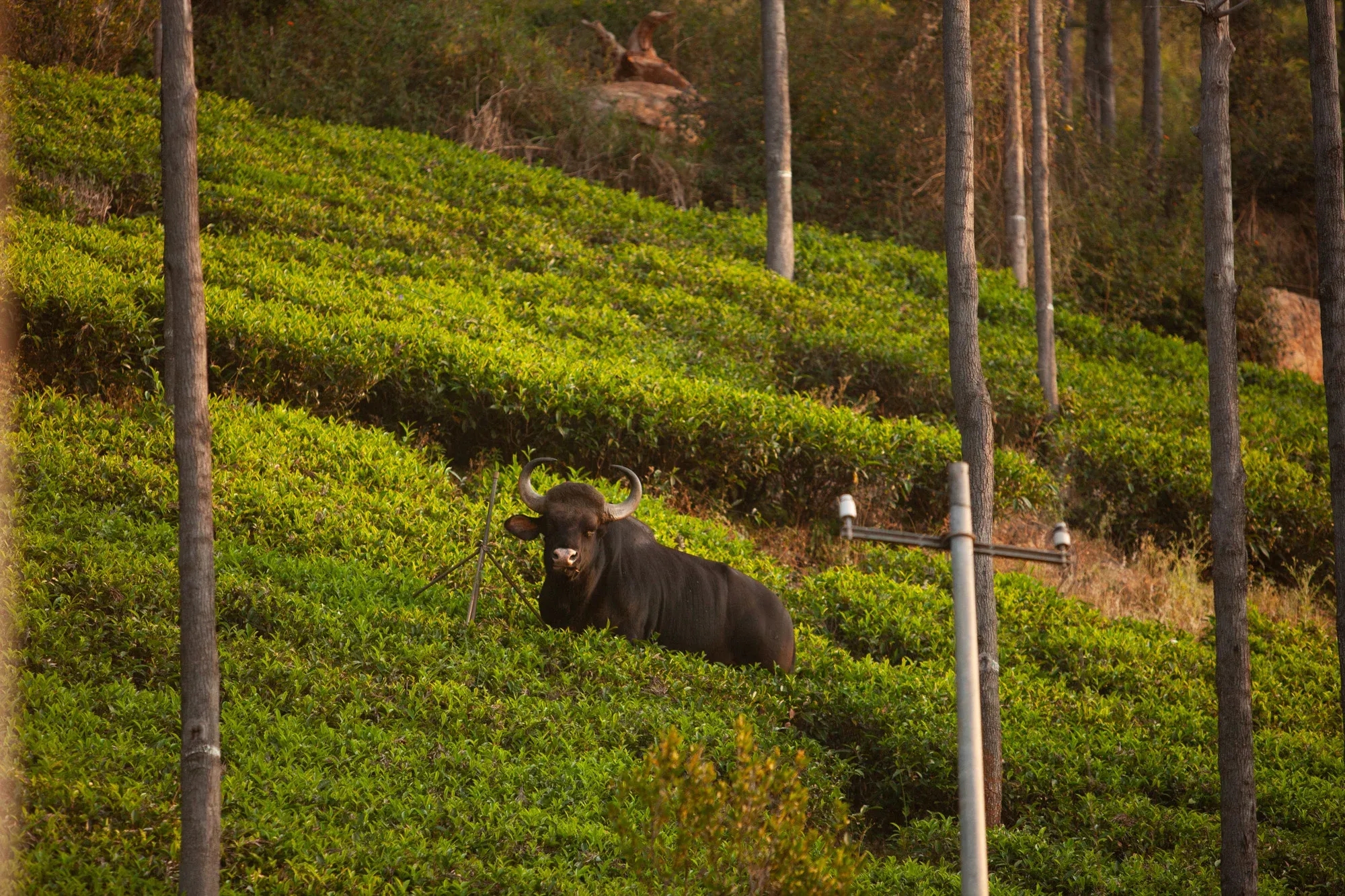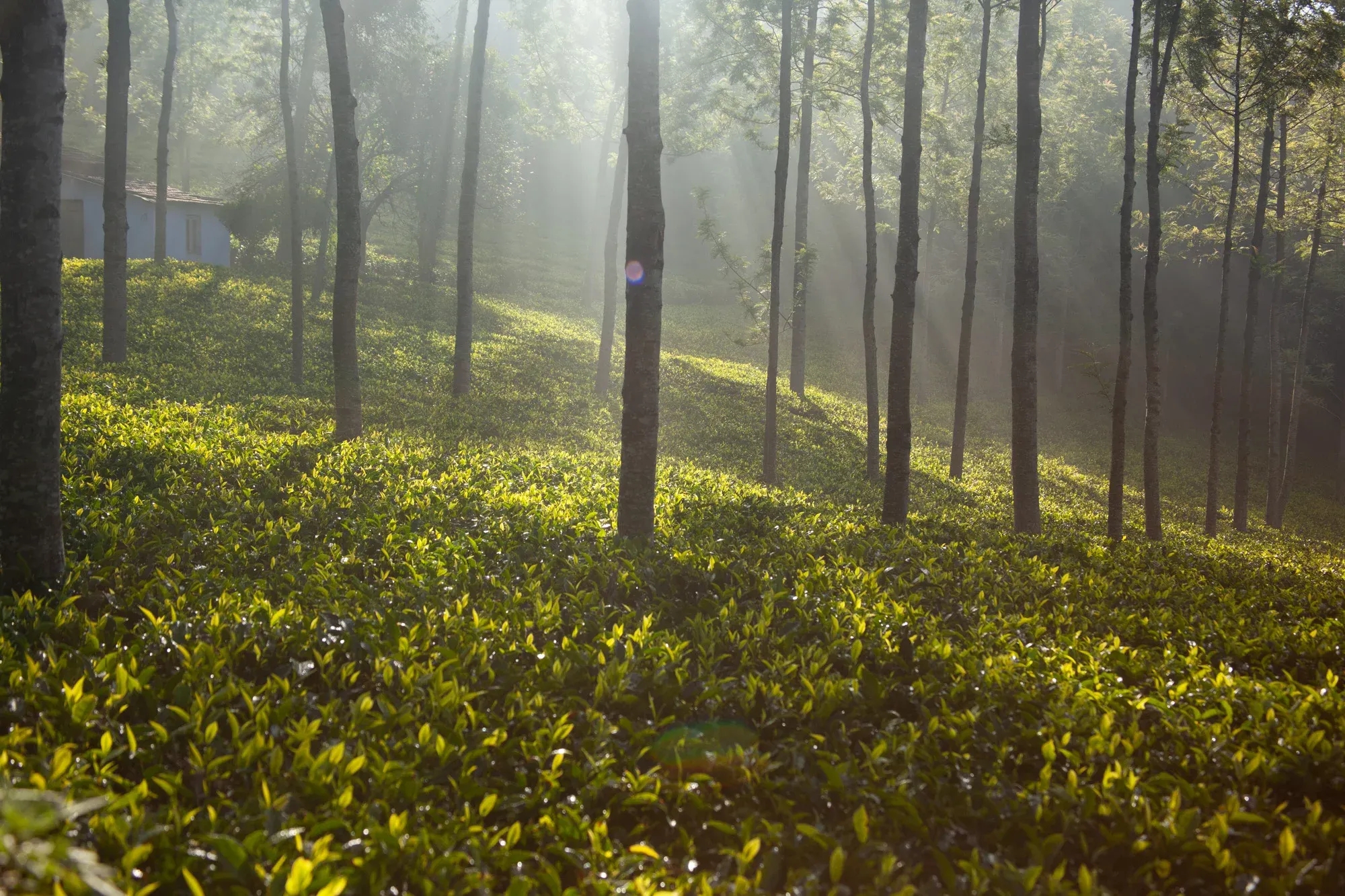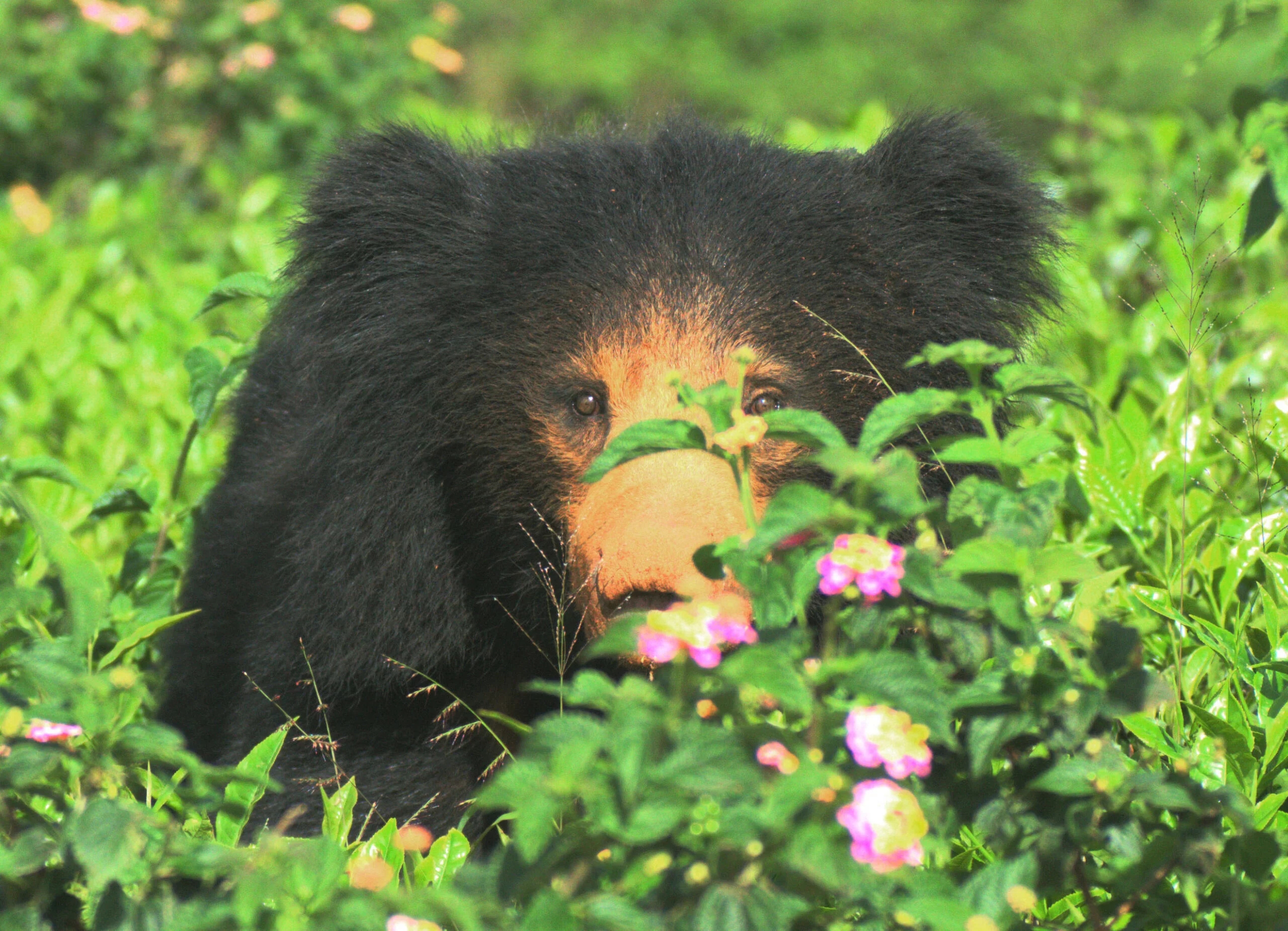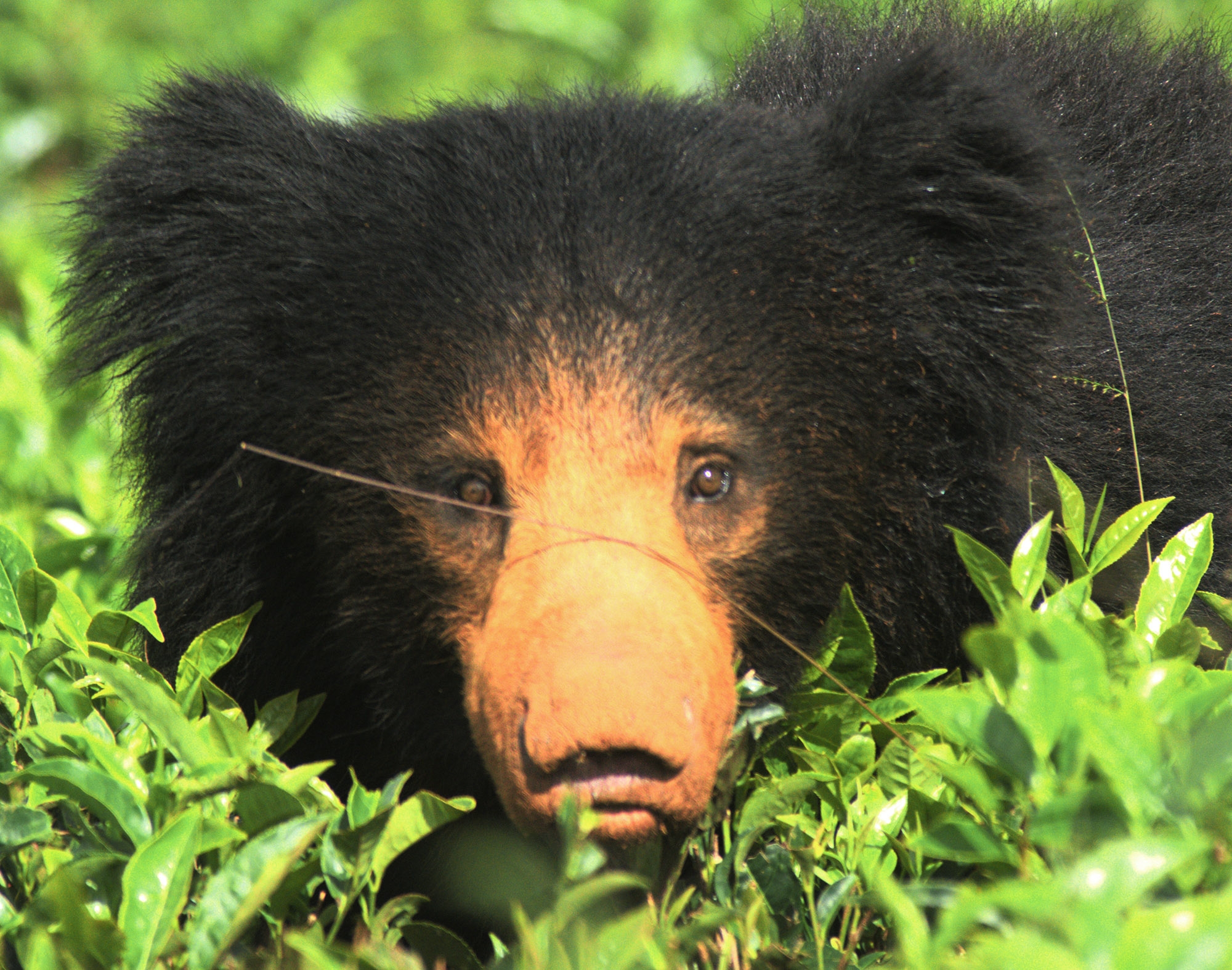The Dawn of Bear Island
14 May 2024WORDS BYGayatri Ganesh
PHOTOGRAPHY BYGayatri Ganesh, Ramya Reddy
Kotagiri, The Nilgiris

Photo: Ramya Reddy
When a star exploded 14 billion years ago, it spewed forth the elements that make up our universe and all life on Earth. Countless collisions over 4.6 billion years between stardust, asteroids, and other planets amassed to form a giant rock – Planet Earth – of churning molten magma, spinning around the Milky Way galaxy. The Nilgiri mountains came to be over two billion years of geological phenomena, which pre-date the emergence of life. In this time, the Nilgiris have travelled eight and a half revolutions around the galaxy. In all their splendour, the youthful Himalayas have barely begun a quarter of a galactic revolution around the bright centre.
Mountains hold time in their bones.
And in every 24-hour nugget of time, the Earth spins round, turning to face the sun (one of a hundred million suns in our galaxy), and we witness sunlight that is 170,000 years and 8.5 minutes old, depositing time and energy into these ancient mountains and into all life that resides here. Two thousand years ago, the first humans gently picked their way through the Nilgiris, infusing the landscape with spiritual landmarks that imbue sentience in the rocks, rivers, native plants, and wild animals, and were revered by the 25 different indigenous tribes who call this place home. Life forms that existed millions of years before humans appeared in the Nilgiris, are still seen today. Their presence as relics of time, on a planet that humans are changing at an unprecedented pace, is a testament to the stewardship by indigenous people whose culture, traditions, myths and folklore are rooted in human coexistence with the natural world.
It is then some kind of cruel irony that these people, who have sustained the natural world for generations, are at the unforgiving frontier of human-animal conflicts – encounters that have an adverse impact on the animals and them. When a herd of elephants ravages a banana field, or a tiger carries away a prized calf, or a bear breaks down a door made of discarded scrap metal to ransack a kitchen, it is usually the socially and economically marginalized communities who face the consequence of loss of livelihood, property, and even life.


The scale of the human-animal conflict cannot be decoupled from our demand for space — for homes, farms, factories, mines, dams, garbage dumps, hospitals, schools, golf courses — and the detritus of our human ways that piles up as a monument to our time on this planet. Even communities that have always lived closer to nature cannot deal with the scale of the loss of wildlife habitat with daily conflicts. Financial compensation by the government for loss of life and property is noteworthy, but it is akin to a bandaid trying to stop a global tide of want.
As a species, we have travelled to this point in time, seduced by 500 years of an Imperial capitalist expansionist philosophy of infinite growth that has led to us plundering the Earth for raw materials, fracturing our bond with nature in the process, only for the proceeds to be grossly inequitably distributed. As the global supply chain demands bigger bananas, more minerals for electric vehicles, or more cotton for the fashion industry, it is farmers who are forced to use chemicals to enhance yields, expand their fields by cutting into forests and grasslands, and labourers who live with mining dust in their lungs. The most marginalized try to survive on the ever-diminishing returns of the capitalist marketplace to feed, educate, and care for their families.
But nobody told the animals. Wild animals are constantly on the move in search of food. Elephant herds follow the same migration paths mapped out millions of years ago. If a highway appears on their route, they will cross it. If a banana plantation or a vast garbage dump pops up, who wouldn’t want to feast! Human expansion into wild spaces has created a dire habitat loss for the creatures that sustain the Earth. During lightning storms, wild animals are electrocuted by exposed wires. Efforts to trap wild animals that repeatedly enter urban human settlements and relocate them to the designated wildlife sanctuaries are patchy and can lead to the death of the animals. Anger against wild animals spreads quickly after a human-animal conflict, and often retaliatory killings through poisoning meat carcasses or setting up bone-crushing snares and neck-breaking traps are the ways we humans manifest our misplaced fury, as our disconnect with the natural world grows.
As a resident of the Nilgiris, I am witness to this disconnect: roads are expanded by carving up the mountain to allow more tourists to enjoy this fragile landscape. This means the bears must claw away bitumen layers in their desperate search for ants and insects (their primary food source). Thick concrete revetments built to hold up the crumbling mountain seal off their ant-foraging mud slopes. Pesticides dumped on farms suck the life out of the soil – killing precious bugs that the ecosystem will crumble without. Fencing increases as land is sold for second homes or buildings, altering a once-open biodiverse landscape. We are colonizing more ground, erasing our ecological inheritance, and grinding our origins back to dust.
Instead of nurturing our connection with nature, the government’s forest management and conservation policies have perpetuated the colonial fetish that separates the common lands from the people. This has prevented the stewardship of sensitive ecosystems alongside the indigenous communities who embody kinship and coexistence with nature.
When I moved to the Nilgiris five years ago, I knew I would find peace living closer to wild things. But as I learned more about the colonial monetization of nature that drastically altered this landscape and saw the present-day destruction around me, a realization surfaced. I needed to do something meaningful with my “one wild and precious life” (Mary Oliver) within this speck of cosmological and geological time in which I exist.
What follows is a description of how, as a caring member clinging to this corroding web of life, I have done more than just despair. I tell my story through vignettes of the lives of the sloth bears who visit our two-acre parcel of land, and what I do to create a space where wild animals and I can feel safe enough to lounge and play, forage and grow. Of all our wild animal visitors – leopards, panthers, Nilgiri mongoose, barking deer, bison, boar, wild hares, frogs, snakes, and all the birds – it is the life of a bear that connects me deeply to this mountain. I roam in my imagination like a bear. They teach me digging, snorting, climbing, ambling, rolling, tumbling, idling, strolling, lounging, fighting, jousting, humping, and the other necessities of life.

Photo: Gayatri Ganesh
After 40 million years of extinctions and evolution since the first dawn bears (Ursavus) appeared, eight bear species remain with us in the world of which sloth bears are found in nearly every state in India from the Western Ghats to the Himalayas. They have just 10% of Indian forests left to roam free. Although bears have long been revered by many cultures as leaders, healers and guides, today they might be the most feared of all the wild animals in the Nilgiris, given their brazen incursions into homes in search of food, scavenging in open landfill sites in daylight hours, and their violent defence when startled or approached.
My reality, though, is unique, and I acknowledge that a tea plucker living in a thatch-roofed mud house with outdoor plumbing will write a very different exposition. So perhaps the intended readers are those of you who, like me, have the privilege of choosing to live close to but also shielded from the wild. I believe we have a greater responsibility towards our chosen homes.
We have christened our home “Bear Island” because the locals told us they would often see bears playing in the swampy bog at the edge of our property. For thousands of years, this land was stewarded by the Kota people. We acknowledge that this land was their traditional territory. Despite my efforts to limit the noise from constructing our clay brick, wood, and glass house, the bears only returned a year after we had moved in. We ripped out all the tea bushes and invasive plants to create “Bear Island,” which is now an island of native shola forest trees and grassland plants, and tiny streams that feed a swamp, moored to a sea of chemical-intensive tea plantations and tarred roads that surround it.
We have never sprayed chemicals since we bought this parcel of land 11 years ago. We use plant-based cleaners, so the animal watering hole is chemical-free. The tenebrous world beneath our young forest floor (enhanced with sawdust) hosts a buffet of tasty life forms. The long snout of the sloth bear – a creature of the Myrmecophaga (the scientific name for anteater) persuasion is perfectly engineered to hoover up ants and grubs from underground mud palaces. We grow our vegetables in no-dig beds, feeding the soil with organic matter. The soil thrives with life, and native plants and birds have gravitated here. I find meaning in this place of nourishment.
If one were to compare our five years of coexisting with the bears to their 40 million years of evolution represented by a 24-hour clock, then we’ve been sharing our lives for a mere 10 seconds. We savour these moments of spiritual connection and never tire of watching them, learn everything we can from their transient visitations, and never take their presence in shaping this landscape for granted.

Photo: Gayatri Ganesh
One cold and wet November morning, I look out the kitchen window and see three black fuzzy balls emerging through a shroud of mist and tumbling down the slope. Oda, the biggest bear cub, has launched himself off his mother’s back, you know, just for kicks. He knocks into his sibling Ona, behind him, who is bouncing off like a cue ball. The third cub, Ora, is small and unsure and slithers down his mother’s back lest he gets left out of the fun.
The spithodia tree has become their trampoline. They jump and swing on the branches until it is raining red flowers. Giddy, they retrieve the flowers from the ground and suck on the nectar. In school, we would squirt the nectar of the spithodia flower out of its phallic-shaped pods, ambushing a kid innocently waiting for the bus–this brazen prank was even more hilarious because the nectar smelled like pee. If you sprayed one of the boys on his lap, you could ride that bravado till karma caught up with you. Knowing that in my human way and in the cubs’ ursine way, we can share a cheeky childhood memory connected by the Spithodia tree, my orbit shifts towards the magical.
We name our bears to transform the “other” into the intimate – “To name is to pay attention; to name is to love.” For in naming something you are extending your knowing of a thing. And I imagine that if animals were to try to talk to us, they would use as few syllables as possible – hence the names O-da / O-na.
A large male bear we named Jambavan (after the King of Bears in Hindu mythology) roamed these parts at the time of our arrival. Jambavan’s son, Ursus (short for Melursus ursinus, the scientific name for sloth bear), was the first male to return to Bear Island. He’s a bear whose circadian rhythm often seems to betray him. When the sun is 30 degrees above the horizon, we see him hurry across the open grass as he ducks behind the dense growth of the native crotalaria bush towards the rocky outcrop to descend into the valley. He is late.
Another time, he surrendered to slumber and curled up in the tea bushes but was soon startled by and terrified the tea pluckers headed to the fields. Popular culture has drawn us to a bear’s cute and fluffy appeal. To see them in the wild evokes fear and respect for these powerful, fiercely protective mammals.
We are more likely to see cautious and fleet-footed Ursula (mate of Ursus) and her cubs for a whole hour in the early morning, as they dig up the forest floor for ants, as the cubs ride bareback on mother or beg her to reach up for the tasty guavas. As the sun drops away, we surrender the night to the wild. The latest male bear (ancestry pending) visits as early as 9 pm. He is large and curious about closed spaces. He roams with impunity, and his hulking size frightens me. But once he’s passed our back door, I know he’s headed for the forest, and I feel safer. I have now rigged up a wooden plank across the door for added protection at night.
Immersive encounters with the natural world fill me with quiet wonder, and this connection becomes a way of being. In my own way, I believe that the bears and I communicate through acts of reciprocation. They have never touched a bed that has vegetable saplings. I reinforce their good behaviour by filling up the holes they have dug up in empty beds for the ants and grubs to make more hotels that bear snouts can crash through. The abundant passion fruit is of no interest to them, so I am honoured to exchange branches of guavas instead. We open barbed wire fences, pile mud in mounds, and make climbing walls easier for the cubs. I once saw two mother bears in a parenting team of four cubs. The mothers nudged the cubs up the steps we had dug out of the side of a sloping stone wall to ease the incline up to the shola forest.
The life of a bear depends on knowing the elements, with evolution and change driving their spirited, complicated, and harsh lives in a shrinking landscape. To want to know their world, to nurture a landscape for them – this is how I can love the earth. To regenerate memories of life in the soil that humans before us had erased – this is how I live my revolution. It is how I choose to love: through a reciprocal relationship of care, attention, and respect for the wild. Protected by our sturdy brick walls and wooden doors, perhaps this is the only way I will know them – separate but familiar, observant but reciprocal.
The battle for habitat between humans and wildlife will continue unless we refocus our efforts on “sustaining the ones who sustain us” (Robin Kimmerer). But the path of coexistence with nature feels increasingly like an analogue approach in a digital age – the entire way in which we value time and the meaning of life would require a rewrite of the social, political, and economic syntax that describes the last 500 years. Despite the destruction humans will leave behind, scientists predict that the Earth will regenerate without us, as it has done for billions of years in cycles of extinction and evolution. But humans are the only recorders of Earth’s memories, and are evolutionarily programmed as mammals to nurture and fight for what we love. My experience living close to wild animals has redeemed my quest for meaning in how we “be” humans – in the ways we convey our respect for the lives lived in the wild. Some of us may take our voices to the newspaper or to the streets, others may stop dumping chemicals in their fields, and still others will watch as the world spins on, round and round.

